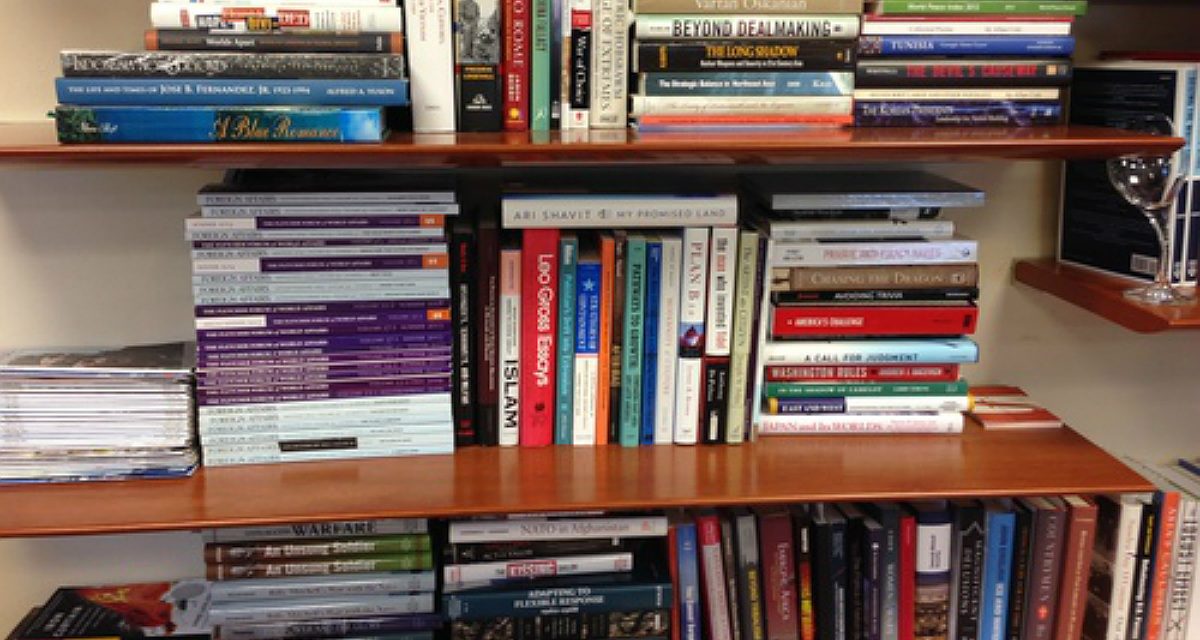Editor’s note: War Books is a weekly MWI series, in which we ask interesting guests—practitioners, experts, or experienced students of war—to list five books that have shaped the way they understand war, warfare, and strategy. This edition of War Books originally appeared in 2016.
Top Five Books
Karl Marlantes, Matterhorn
A searing portrait of a young Marine officer’s first sixty days in vicious combat in Vietnam. Counterinsurgency turned upside down. Read it alongside Arkady Babchenko’s One Soldier’s War, about the Soviet experience in Chechnya.
Nicholas Montserrat, The Cruel Sea
War at Sea, with all of the human costs; and a gripping portrait of command.
Patrick O’Brian, Master and Commander
This just one of an entire series of twenty novels set two centuries ago during the Napoleonic wars. They are a sustained meditation on life at sea, leadership in war, human interaction, the meaning of friendship, and great power politics. Taken together, the novels are the greatest sustained work of fiction in the twentieth century. Really.
Thucydides, The Peloponnesian Wars
History was invented by the ancient Greeks, and this superbly told tale of coalition warfare, diplomacy and war, the rise and fall of city states, and the power of personality has it all.
Ulysses S. Grant, Personal Memoirs of U.S. Grant
Human in scale, epic in execution, and beautifully written by a dying general who lived with passion and conviction—often misled by others, but always searching for his true north. Perhaps the best autobiography written.
The One That Shaped Me The Most
Not a single book, but the collected works of Hemingway have had great influence on me. Taken together, they cover so many of the situations in which we find ourselves in the military and in the lives we have led: war itself, of course, but also the challenges of relationships, the turmoil of change, the danger of over-reliance on others, the need for a moral code, the bleak outcomes life offers in the end, the sense of resilience, a passion for life and all that it offers—the list goes on and on. Classics that I come back to again and again are The Sun Also Rises, For Whom the Bell Tolls, The Snows of Kilimanjaro, The Old Man and the Sea, A Farewell to Arms, A Moveable Feast, and the Nick Adams short stories. I own a half dozen first editions, and a signed copy of A Farewell to Arms, that I count among my most prized possessions.



Haven't read these books yet. But probably the best 'War Books' in some time. Short and to the point and makes me want to take time to read all six or 26 plus go through Hemingway again.